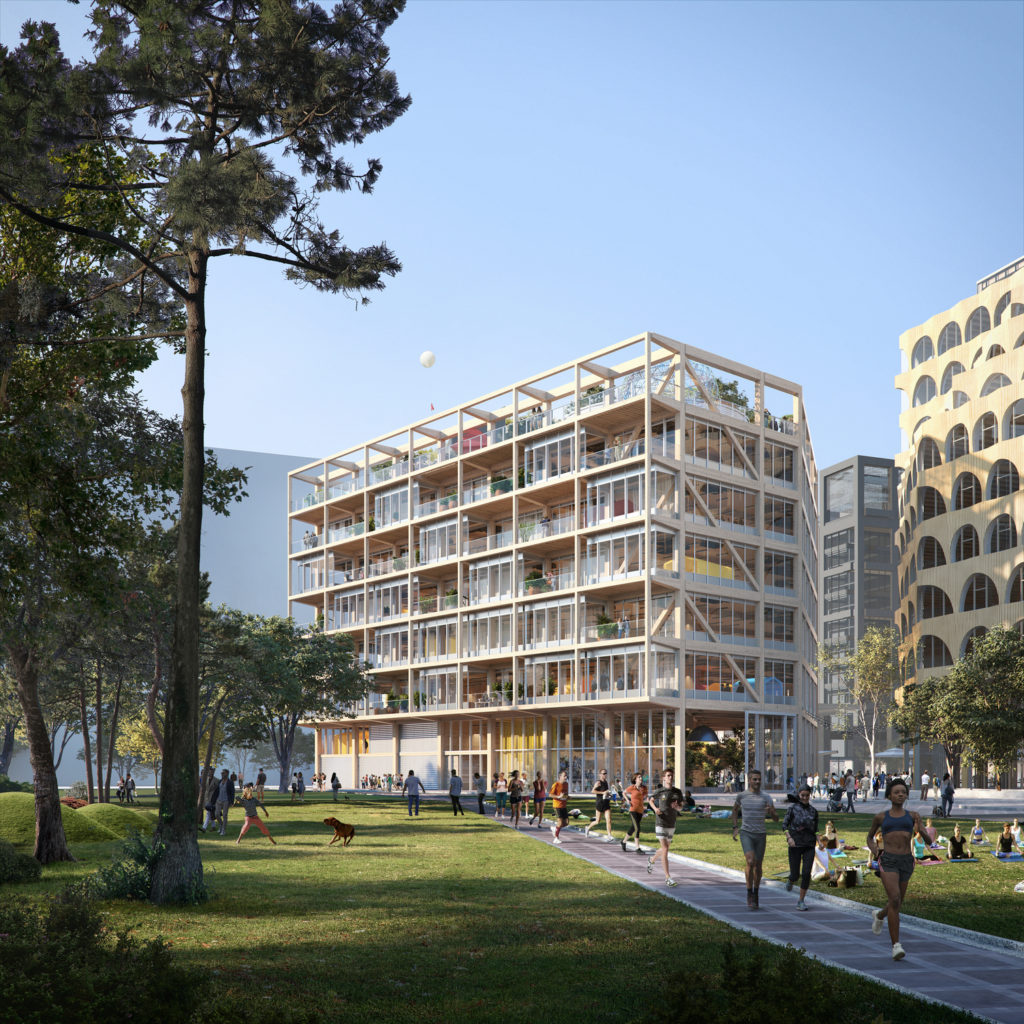
Piers Nickalls, Office Lead for Brent Cross Town, questions how the learnings from flex workspaces of the future translates into actual design?
In many ways, the use of office space was already evolving pre-pandemic, with many occupiers-re-evaluating layouts to work with new desk allocation policies, encouraging greater participation and collaboration, and preferring spaces with at least a degree of flexibility. We saw an increase in ‘touch-down’ spaces with an Ace Hotel ambience, meeting rooms with flexible partitioning solutions, biophilic elements for air purification and wellbeing – the beginning of the convergence of our spaces.
Leased and flex workspaces trends are likely to continue in popularity and prevalence as the UK goes back to the office. While many business owners still see the benefits of having a place to call their permanent HQ, the use of flex space provides some useful insights into the interplay between different environments as developers consider how to implement the new hybrid working model.
The first thing is that flexible co-workspaces prioritise how people work, rather than when. They offer a (usually data-driven decision made) blend of quiet spaces for focus, rooms designed for intense collaboration, and the ‘third space’ elements of kitchen/dining/lounge which act as watercooler, more serendipitous meeting spots. This variety and the thought behind how much of each, and where each should go in a building, is something we’re looking at carefully in our low-energy buildings with multiple occupiers and hybrid uses.
How does this translate into actual design? One way is the enabling of a variety of uses and adaptations.
Distinctive features of this at our Brent Cross Town development include the higher-than-usual floor-to-ceiling heights giving ease of vertical connectivity between floors, and access to both natural light and outdoor spaces, providing future occupiers with the means to install either flexible working environments or the more unusual amenities such as a gymnasium, bar or auditorium, thus improving the buildings’ longevity and sustainability.
The second is that any stigma of working from home has now gone and so any trips into the office must be deemed ‘worthwhile’ by employees.
The ‘wasted’ time of a commute therefore has to be mitigated by the pleasure and productivity benefits of working from a space that’s sustainable, ergonomic, satisfyingly decorated and – frankly – a million miles away from being at home. The new office location also has to be a place where staff can access amenities, social interactions and experiences that they can get only away from where they live. Uninspiring, poorly connected locations and buildings won’t cut it: staff will resent the trip. Places which make it easy to build in daily exercise, socialising or facilitate ‘life admin’ are not just appreciated by staff, they are becoming essential to busy lifestyles.
Flexible and co-working space often facilitates the organic networking between freelancers that we hear so much about. When it comes to a whole business, however, something different is needed – purposeful brands want to be part of something broader, a supportive network of like-minded businesses that benefit from co-location. Argent was a founding member of the King’s Cross-Euston Knowledge Quarter which, since 2014, has provided such a richness of collaborative business relationships to this part of London. As Argent Related, we are now bringing those experiences and learnings to bear at Brent Cross Town for a new and exciting business ecosystem. Companies tell us about the tangible value a proactive estate owner brings and how they appreciate having a stake in their location’s neighbourhood beyond the traditional lease. At Brent Cross Town we are thinking carefully about how the occupiers of our office buildings will collaborate and how the network can build to enable benefits to all right from the start. As the workforces of leading brands become more dispersed, Brent Cross Town is – quite literally – in a good position to support more hybrid working arrangements, with 5.2 million working-age workers living within 60 minutes’ travel time of our development.
For occupiers, we think the challenge is going to be ensuring that their physical spaces and the flexibility that is required is not coming at the cost of clarity, productivity and employee happiness: we must support them in helping them bring their people together emotionally as well as physically, and identifying what ‘good flexibility’ means, now and for the future.

